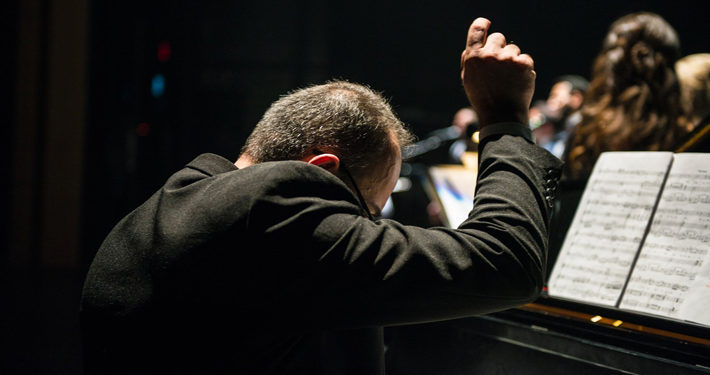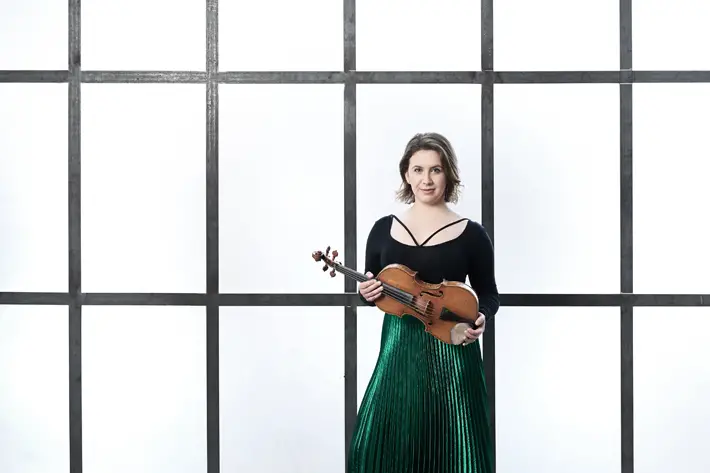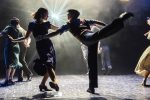The Hallé Orchestra – Live Review – Hull New Theatre

By Karl Hornsey, November 2021
While it must have been said many times in recent weeks and months, there are some occasions when you find yourself sitting back and enjoying live entertainment, losing yourself in the moment. And then something just triggers the thought that this is what we’ve missed so much since the start of the pandemic. Such a moment washed over me as we sat at Hull New Theatre watching the Hallé Orchestra in their performance of pieces by Haydn, Mendelssohn and Dvorak, which was the first live classical concert that we’d attended in the best part of two years.
A few minutes into the opening piece, I could actually feel the goosebumps on my arms and that tingling sensation that told me I was lost in the music and lucky to be in the audience. The Hallé, of course, are one of the most famous and appreciated orchestras in the country, if not the world, and they were on fine form once again, despite having to move from Hull’s usual venue for classical music, the City Hall, and decamp to the New Theatre. There’s little doubt that the former is the more suitable venue for an orchestra, but on this occasion it really didn’t matter.
The concert opened with Haydn’s Symphony No 30, nicknamed his Alleluja Symphony, in three movements and a revelation in its innovative use of the woodwind instruments, notably the flute, which pops up with increasing regularity throughout the piece, and really steals the show. It also offered up our first sighting of enigmatic conductor Clemens Schuldt, who is making a name for himself across the continent as one of the finest conductors of the time.
“High-spirited tone”
The young Bremen-born Principal Conductor of the Munchener Kammerorchester is keen to bring lesser-known pieces to a wider audience, and his sheer enthusiasm for his role shone through all evening, making him a man from whom it’s hard to draw one’s eyes. Schuldt has a natural charisma to him, and isn’t afraid to put everything into his conducting, although how some of the orchestra’s members can concentrate on their instruments with him almost dancing to the rhythm in front of them was nothing short of remarkable at times!
The second piece of the first half brought to the stage Chloe Hanslip for Mendelssohn’s Violin Concerto, which was the composer’s final major work before his untimely death at the age of just 38. At just under half an hour, it’s by no means the longest of violin concertos, but still manages to pack plenty in, with the solo violin jauntily skipping along in tune with the bassoons in particular to give a high-spirited tone to the whole piece. The final piece of the concert was Dvorak’s Symphony No 8, which continued the cheery and upbeat nature of the evening, and it’s certainly a piece that stands out as being a little more optimistic than many of the composer’s others. For that, we have to thank Dvorak’s generally cheery mood at the time and the fact that this is his ode to the birdsong that surrounded him while staying at his house in rural Bohemia in the late 1880s. That birdsong proliferates throughout, and again the strong woodwind influence brings to mind the call of nature that Dvorak so loved.
This was a lovely, light way to be reintroduced to the experience of hearing live music again, and an upbeat concert enjoyed by all was just the ticket, brought by a wonderful orchestra and captivating conductor.










